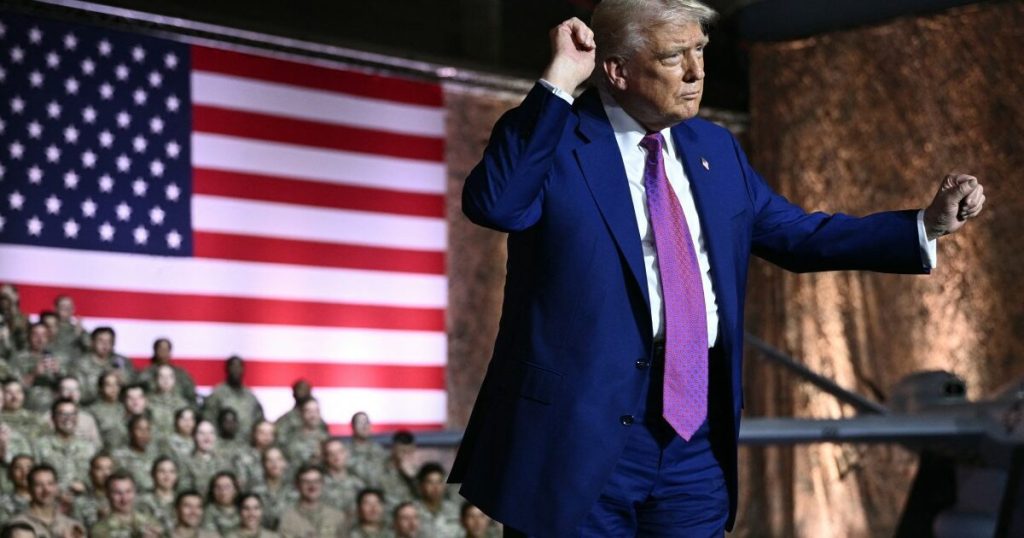Former US President Donald Trump’s unsolicited intervention in Israeli Prime Minister Benjamin Netanyahu’s ongoing corruption trial has ignited a firestorm of criticism within Israel, drawing sharp rebukes from opposition leaders while garnering support from Netanyahu’s loyalists. Trump’s declaration, posted on his Truth Social platform, denounced the charges against Netanyahu as a baseless “witch hunt” and lauded the Israeli leader’s strength in the face of recent conflict with Iran. This blatant attempt to influence Israel’s judicial process has reignited the debate surrounding Netanyahu’s legal battles and the delicate balance between international relations and domestic affairs. The incident has also highlighted the deep political divisions within Israel, with reactions falling largely along party lines.
Trump’s assertion that the “United States of America saved Israel” and will now “save Bibi Netanyahu” was met with swift condemnation from opposition figures. Yair Lapid, leader of the Yesh Atid party, while acknowledging US support during the conflict with Iran, criticized Trump’s remarks as inappropriate interference in an ongoing judicial matter. Lapid also suggested that Trump’s intervention might be aimed at bolstering Netanyahu’s political standing ahead of potential ceasefire negotiations in Gaza. Other opposition members echoed these sentiments, emphasizing the principle of equality before the law, regardless of political position. This condemnation underscores the concern that external interference could undermine the integrity of Israel’s legal system and set a dangerous precedent for future international involvement in domestic legal proceedings.
In contrast, Netanyahu’s supporters, including several government ministers, welcomed Trump’s statement. They echoed Trump’s claims of a politically motivated prosecution, portraying Netanyahu as a victim of a “deep state” conspiracy. This stark contrast in reactions highlights the polarized nature of Israeli politics and the deep divisions surrounding Netanyahu’s leadership and the corruption charges against him. While Netanyahu’s allies view Trump’s intervention as support from a powerful ally, critics see it as a blatant disregard for Israel’s sovereignty and judicial independence.
The controversy also exposed fissures within the right-wing bloc. While some right-wing figures endorsed Trump’s intervention, others, including Simcha Rothman, chair of the parliamentary law and justice committee, cautioned against external involvement in Israel’s internal affairs. Rothman, while acknowledging potential flaws in the Israeli judicial system, stressed that it was not the purview of a foreign leader to interfere in Israeli legal proceedings. This nuanced response within Netanyahu’s own political camp suggests a recognition of the potential damage such interference could inflict on Israel’s legal system and its international relationships.
Netanyahu, who faces charges of fraud, breach of trust, and accepting bribes in three separate cases, has consistently denied all allegations, claiming they are politically motivated. The trial, which began in May 2020, has been plagued by delays, some attributed to security concerns related to the ongoing conflicts in the region. The resumption of cross-examination earlier this month signals a potential year-long continuation of the legal process, further fueling the political tension and uncertainty surrounding Netanyahu’s future. The prolonged nature of the trial and its intersection with complex geopolitical events contribute to the ongoing instability and division within Israel.
The incident underscores the complex interplay of international relations, domestic politics, and legal proceedings. While Trump’s intervention plays into the existing political divisions within Israel, it also raises broader questions about the appropriateness of foreign leaders commenting on, and attempting to influence, the legal affairs of other nations. The fact that the intervention came from a former US president, a country with a historically close relationship with Israel, adds another layer of complexity to the situation. The fallout from this incident is likely to continue resonating within Israeli politics and could further strain the relationship between Israel and the United States, particularly given the Biden administration’s contrasting stance on non-interference in domestic legal matters. Ultimately, the trial’s outcome and the political ramifications of Trump’s intervention remain uncertain, leaving Israel in a state of continued political and legal limbo.


